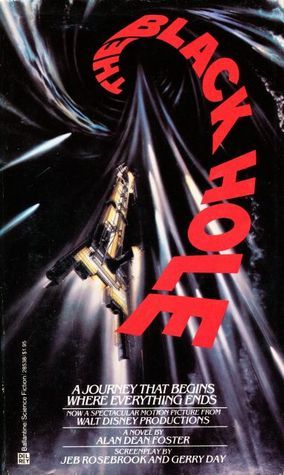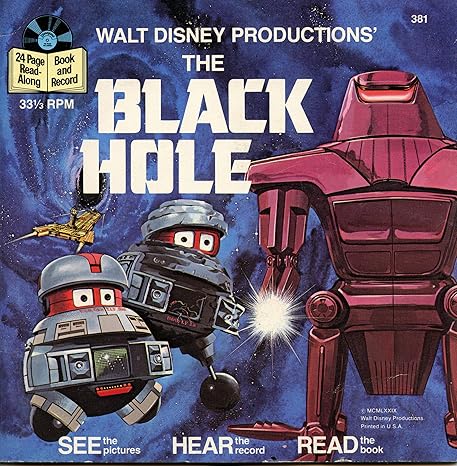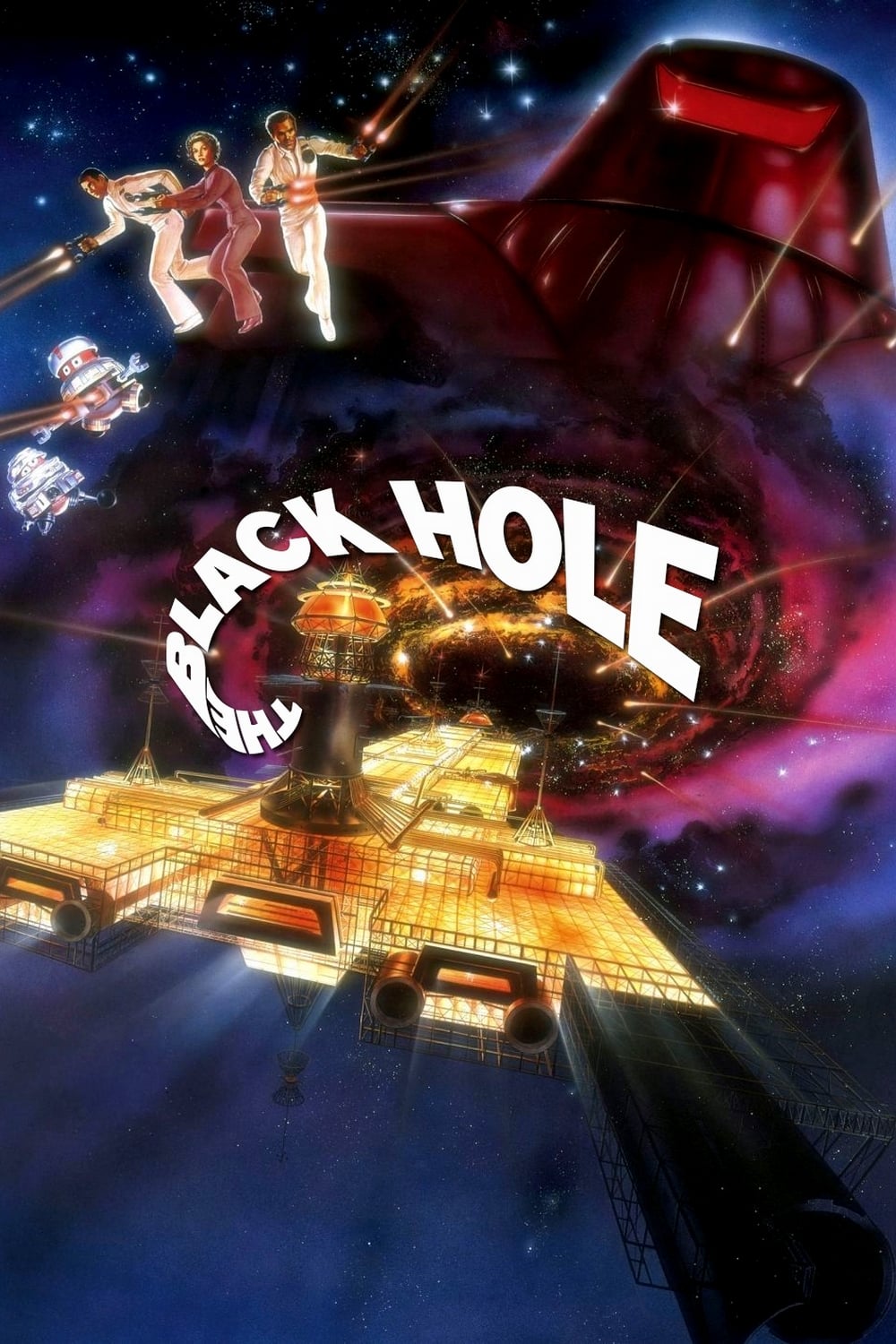The Black Hole
Alan Dean Foster

Front Cover
Now, the latter half of this review's description isn't quite true. Really, my first exposure to this story was when I was about 8 or 9. My parents had a book-and-record version of it that they'd let me listen to on occasion. I'm told it used to terrify me.
Unfortunately, reading it as an adult (and in a book 10 times as long) elicited no such emotions. Hardly any at all, in fact.
We're all surely familiar with the Hollywood formula of adapting books into movies, but Foster's novel is slightly unusual in that it does the inverse. Before it became a paperback, The Black Hole was a 1979 Disney film, commonly understood as the studio's answer to Star Wars. This ancient trivia has become modern comedy now that Disney owns Star Wars and their original IP has been formally subducted.
I'm not losing any sleep over that, though.
This thing is everything I don't like in science fiction: pulpy, slow, and utterly derivative. It reads like a deserted island story you've already tired of; it just happens to be in space. There's really nothing that it does well or even slightly above average—not by modern standards nor those of its time.

Book-and-Record Version
Foster's rendering of the narrative is arduously, buoyantly predictable. He writes with third-person omniscience, explicitly defining each character's thought processes and motivations, including—get this—the main villain. Almost any sense of tension or mystery is destroyed as soon as it's introduced by the inherent properties of the chosen medium. It's such a silly, eight-grade level oversight.
This poor choice of form also serves to make the story's character work transparently bad. Every human character manages to be stereotypical and inconsistent at the same time, only leaving their Jungian prisons to stir up contrived, artificial, and ultimately meaningless conflict. The exception to this is the robots, who, ironically, have slightly more soul.
On the topic of characters, the sole female character is handled, even by 1979 standards, disgustingly. She is the only member of the main cast with an emotional connection to the events of the story, and she is endlessly plagued by nervous breakdowns. Frequently, these require consolation from male characters, particularly from the ship's captain. The two of them are also in a purposeless, wish-fulfilling relationship. I can imagine this note of misogyny being passable in a 70's blockbuster screenplay, but when examined at the prose level, it becomes an active distraction.

Original Movie Poster
I have very few good things to say about this, as you've no doubt noticed. It manages to squeeze half an Opinion star out of me, but that's purely from nostalgia; I was tempted to give it none.
However, I don't think it's complete, meritless garbage. It's flawed, certainly, but you could readily do worse when it comes to pulp sci-fi. It's a humble piece of genre fiction that (really) isn't trying to be anything else. It's within that space that I think it deserves 2 stars.
Normally, I enjoy writing negative reviews. They're where I can be arrogant and animated most easily. But I really, really wanted to love this book, and I didn't. That made me even angrier than I'd normally be, well beyond "waste-of-time" feelings, but also pretty sad. I grew up with this thing, and to find out that it's nothing like what I remember—especially in such a negative way—sucks.
The book-and-record version from my childhood would play a chime sound to dictate page turns. I still remember it like it was yesterday, pitch, timbre and all. That sound effect was better than this entire novel.
- Lebenaut